Faculty Drive neighborhood remains an integral part of the Wake Forest community
This is a guest post from Alex Abrams, communications coordinator in the Office of the Dean of the College:
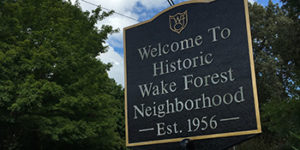 A large historical marker stands at the corner of Faculty Drive and Timberlake Lane, just across the street from where Wake Forest University’s Department of Biology is housed inside Winston Hall.
A large historical marker stands at the corner of Faculty Drive and Timberlake Lane, just across the street from where Wake Forest University’s Department of Biology is housed inside Winston Hall.
The words “Welcome To Historic Wake Forest Neighborhood – Est. 1956” are etched into the metal historical marker, which has been painted old gold and black like other signs posted around campus.
Just past the marker, one- and two-story houses line the five quiet streets that make up the neighborhood. The houses range in style, with some exteriors made of brick and others covered with wood. Large trees in each yard provide both shade on a hot afternoon and a limb for the occasional tree swing.
Martha Allman, WFU’s Dean of Admissions, got a sense of the neighborhood during her four years living on campus as an undergraduate student. Her freshman advisor had a house on Royall Drive and hosted a dinner for students during Orientation.
“I had this very idealized feeling about that neighborhood and how wonderful it would be to live there,” Allman said.
In 2001, Allman and her husband moved their two young daughters into a yellow house on Faculty Drive. Their neighbors include a “Who’s Who” list of WFU administrators, professors, and staff members who also enjoy living on campus, walking to work, and hosting students in their homes.
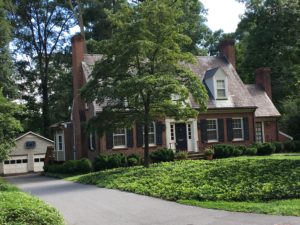 The Historic Wake Forest Neighborhood was started the same year WFU moved its campus to Winston-Salem as a place for faculty who had relocated to live. It has since grown into a tight-knit community where dozens of university employees have raised their children just down the street from Wait Chapel for more than 50 years.
The Historic Wake Forest Neighborhood was started the same year WFU moved its campus to Winston-Salem as a place for faculty who had relocated to live. It has since grown into a tight-knit community where dozens of university employees have raised their children just down the street from Wait Chapel for more than 50 years.
“Over here faculty members are our next-door neighbors, and the fact that one faculty member was a historian, another one was a psychologist, another one was a physicist, that’s tremendously important,” said Ed Wilson, the longtime English professor and Provost who is affectionately known as Mr. Wake Forest.
“And of course it made our children grow up with the idea that it was important to go to college, and if they could, it was important to do well.”
Wilson still lives in the same four-bedroom house that he and his wife, Emily, built on Timberlake Lane in 1964. He raised his three children there. He can still remember the different routes he used to walk every day to reach his favorite spots on campus, including his office in Tribble Hall.
Categories: Inside WFU
‘Book club' approach to first-year reading
Wake Forest took a “book club” approach to this year’s summer reading assignment for first-year students. From John Grisham’s “Gray Mountain” to Levitt and Dubner’s “Think Like a Freak,” to Susan Cain’s “Quiet,” incoming students can choose from 22 different books.
All of the books fit this year’s theme, “Exploring Difference, Embracing Diversity.” Contemporary novels, historical novels, non-fiction, and a collection of short stories made the list.
The Orientation and Lower Division Advising Committee originally planned to choose one common reading, but changed course when it received so many good recommendations from faculty members.
“Our committee asked the question, ‘Why do we have to pick just one?’” said Senior Associate Dean for Academic Advising Christy Buchanan.
Categories: Faculty News, Staff News
Leadership Development Program focuses on a global WFU
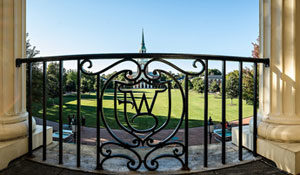 Congratulations to the 2013-14 Leadership Development Program (LDP) participants: Miriam Ashley-Ross, Nate French, Allison McWilliams, Tim Auman, Anne Hardcastle, Paige Meltzer, Alessandra Beasley Von Burg, Robert Hellyer, Matt Merrick, Andrea Bohn, Beth Hoagland, Lori Messer, Christy Buchanan, Brad Jones, José Villalba, Thomas Dowling, Angela Mazaris, Ron Von Berg
Congratulations to the 2013-14 Leadership Development Program (LDP) participants: Miriam Ashley-Ross, Nate French, Allison McWilliams, Tim Auman, Anne Hardcastle, Paige Meltzer, Alessandra Beasley Von Burg, Robert Hellyer, Matt Merrick, Andrea Bohn, Beth Hoagland, Lori Messer, Christy Buchanan, Brad Jones, José Villalba, Thomas Dowling, Angela Mazaris, Ron Von Berg
Program participants included 18 faculty and staff from various departments across campus that serve in leadership roles.
The nine-month program kicked off last August with a two-day intensive session structured around a 360° assessment for each member. The developmental topics offered throughout the year included: Leading Authentically, Communicating Authentically, Powerful Conversations, Reinventing Diversity, Thriving in Times of Change, Leading with Your Strengths, and Leading Authentically: Putting it all Together.
Categories: Faculty News, Staff News
Proposals funded: Rejeski and Harriger
Congratulations to Walter J. Rejeski, professor of health and exercise science, whose proposal entitled “LookAhead Extension” has been funded by the National Institutes of Health (NIH) and the WFU Health Sciences (WFU funding agency).
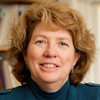 Congratulations to Katy J. Harriger, professor and department chair of politics and international affairs, whose proposal entitled “Follow-up Study on the impact of the Democracy Fellows program on alumni” has been funded by the Kettering Foundation. Also included in the project were Christy Buchanan, professor of psychology and associate dean of academic advising and Jill McMillan, professor emerita and research professor of communication.
Congratulations to Katy J. Harriger, professor and department chair of politics and international affairs, whose proposal entitled “Follow-up Study on the impact of the Democracy Fellows program on alumni” has been funded by the Kettering Foundation. Also included in the project were Christy Buchanan, professor of psychology and associate dean of academic advising and Jill McMillan, professor emerita and research professor of communication.
Categories: Faculty News
Parent, Wiethaus publish book with multiple WFU authors
Anthony Parent and Ulrike Wiethaus of Wake Forest have published a book which includes their own work as well as that of many other Wake Forest authors: “Trauma and Resilience in American Indian and African American Southern History.” It was published by Peter Lang Publishing in April.
Parent is a professor of history and American ethnic studies, and Wiethaus is a professor of religion and American ethnic studies, as well as being a 2013 Community Solutions Fellow with the Institute for Public Engagement.
Parent and Wiethaus wrote the introduction (“Un-doing Southern Silences”), and Parent wrote two chapters: “‘Home’ and ‘House’ in Harriet Jacobs’s Incidents in the Life of a Slave Girl” and “Slave Songs as a Public Poetics of Resistance.”
Other Wake Forest authors and their chapter titles:
- Beth Hopkins, director of outreach for the School of Law, “The Making of an African American Family”
- Margaret Bender, associate professor of anthropology, “Language Loss and Resilience in Cherokee Medicinal Texts”
- Margaret Zulick, associate professor of communication, “The Suppression of Native American Presence in the Protestant Myth of America”
- Nina Maria Lucas; associate professor, director of dance, artistic director of the Dance Company; “Dancing as Protest: Three African American Choreographers, 1940–1960”
- Christy Buchanan, professor of psychology; Joseph Grzywacz, associate director for research, Center for Worker Health, associate professor, department of Family and Community Medicine, School of Medicine; “African-American Mothers of Adolescents: Resilience and Strengths”
- Stephen Boyd, John Allen Easley Professor of Religion, “The Visceral Roots of Racism”
- Ronald Neal, visiting assistant professor of religion, “Race, Class, and the Traumatic Legacy of Southern Masculinity”
- Ana-Maria Wahl, associate professor of sociology; and Steven Gunkel, lecturer in sociology; “‘Living High on the Hog’? Race, Class and Union Organizing in Rural North Carolina”
Categories: Faculty News

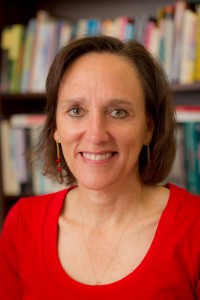
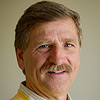
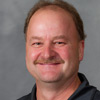 In addition to his work on this book, Gunkel has recently published three entries in the Encyclopedia of White-Collar and Corporate Crime (Sage; 2nd Edition; July 2013): “Bernard Madoff,” Insider Trading Sanctions Act,” and “Times Beach Contamination.”
In addition to his work on this book, Gunkel has recently published three entries in the Encyclopedia of White-Collar and Corporate Crime (Sage; 2nd Edition; July 2013): “Bernard Madoff,” Insider Trading Sanctions Act,” and “Times Beach Contamination.”
